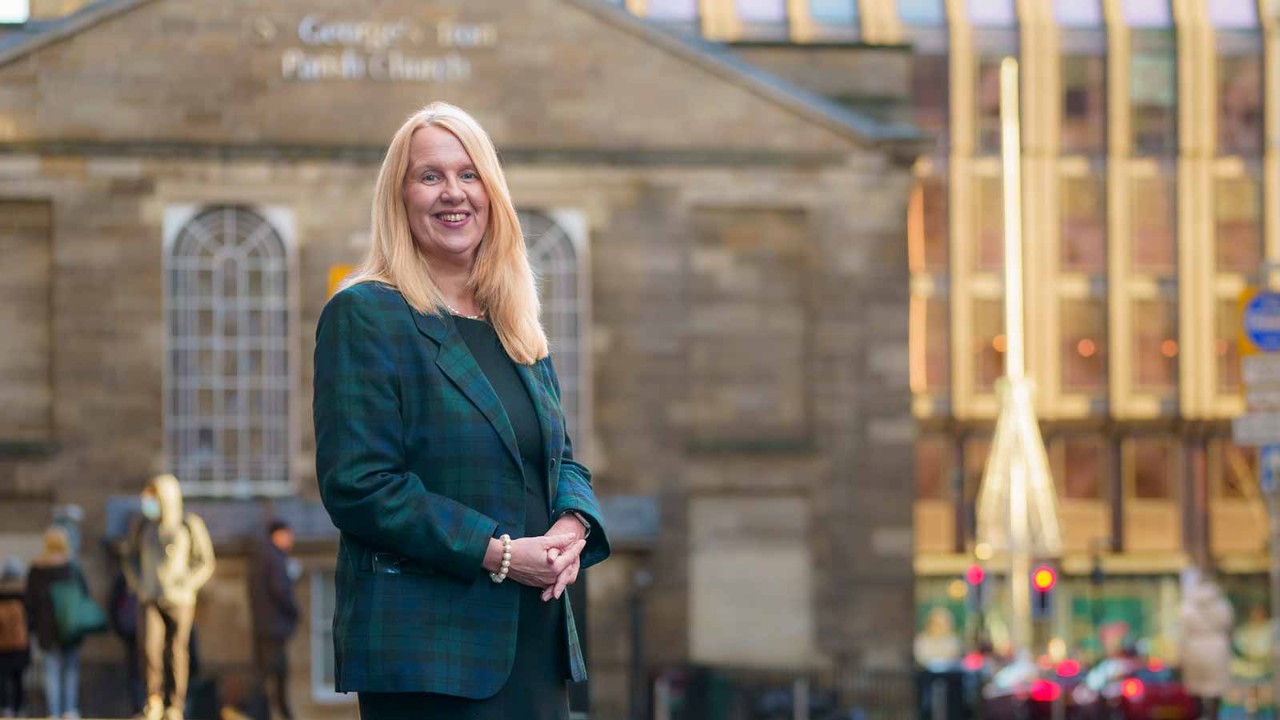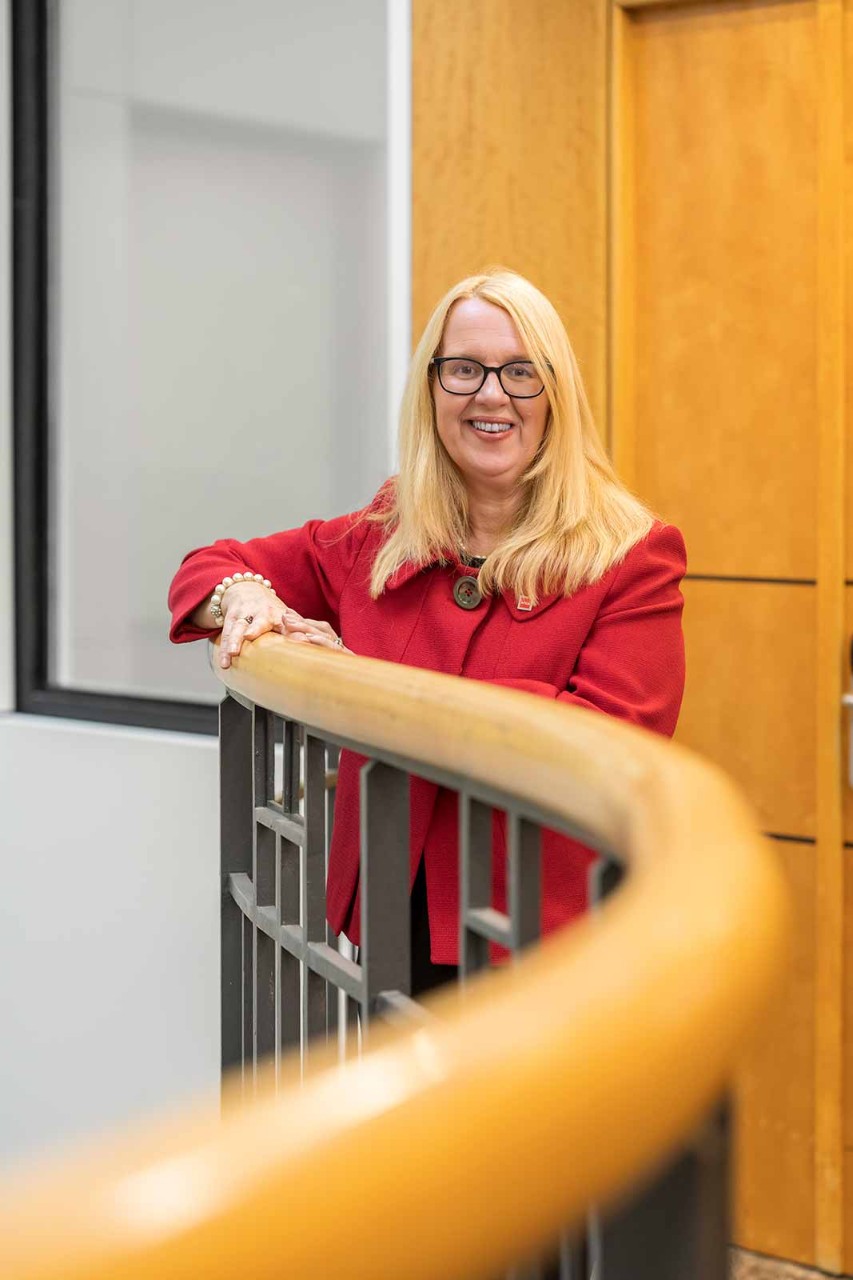
Elaine Boyd has built her career by exceeding expectations. Today she is director of audit quality and appointments for Audit Scotland, the Scottish independent public spending watchdog. As a schoolgirl, however, she was told by a teacher that she should work in a shop, as that’s all she would ever be able to do.
Boyd has cerebral palsy, a group of disorders that affect movement and coordination, with her own condition heavily limiting the mobility on the left side of her body. But she has never let her disability stand in the way of what she wants to achieve.
‘People with disabilities are always looking for alternative solutions rather than looking at the problems’
Not only does Boyd hold a senior position in public finance, she is a member of the Financial Reporting Council’s Stakeholder Insight Group and chairs the ACCA Scotland Committee. She has also acted as a trustee for a string of charities, including Cerebral Palsy Scotland and Exceed Worldwide, which trains prosthetist orthotists (makers and fitters of artificial limbs and supports) in South Asia. On top of these professional achievements, she has learned to fly, cycle, ski and ride horses.
In Boyd’s view, disabled people can be good problem-solvers because of their experience of navigating challenges. ‘I can’t go up and down a set of stairs the same way you would go up and down a set of stairs,’ she says. ‘But I’ve got my own way of doing that. People with disabilities are always looking for alternative solutions that work for them, rather than looking at the problems.’
Accolades
Boyd was awarded an OBE in the King’s New Year Honours list 2023 for public and charitable services. Her accomplishments have also resulted in her featuring on The Shaw Trust Disability Power 100 2022, a list of the most influential disabled people in the UK. She has now appeared on the prestigious ranking twice, having previously been included in 2020, and will help to judge the 2023 list nominees. Recently, she was also named ACCA UK’s public sector advocate of the year 2022.
Boyd is rightly proud of these accolades. She believes that the Disability Power 100 list is significant because it showcases what disabled people can achieve, which is inspiring to other people with disabilities.
‘There have never been higher expectations around audit quality so I’m making sure we can meet those’

‘There are a wide variety of people on the list,’ she says. ‘There are journalists, artists and finance people like me. It really gives you a flavour for what people can do.’
Of the ACCA award, Boyd admits to feeling quite emotional when she received it. As a young woman starting out in public-sector finance, not only did she have her disability to contend with, she was also one of few female finance professionals in what was then very much a man’s world.
‘To have got an award for going through that process meant a lot to me,’ she says. ‘I was hugely proud to achieve that, particularly for the work we’ve done in Scotland.’
Driving up audit quality
At Audit Scotland, Boyd is responsible for reviewing the quality of work performed by the organisation’s own auditors, as well as the six firms that it employs to perform audit work (Azets, Deloitte, EY, Grant Thornton, KPMG and Mazars).
She is also in charge of appointing auditors to individual public bodies, such as health boards, councils and central government bodies, deciding what audit needs to be in place and agreeing fees.
Boyd’s team is small, consisting of just four people, including her. Nevertheless, it has a large remit through the nature of its work, which covers both financial audit and performance audit (for example, audits of whether transport services run on time). Every year the team produces an annual report for the Auditor General for Scotland and Accounts Commission, addressing topics such as good practice, areas for improvement and overall audit quality.
She admits the job can be demanding since auditors don’t necessarily like being challenged, but it is also very satisfying.
‘The thing that drives me is we’ve been able to see lots of improvement in the quality of the audits that are being carried out,’ she says. ‘There have never been higher expectations around audit quality, so making sure we’re in the right place to meet those expectations is what I’m doing.’
‘You feel you have to prove yourself because people have this expectation you’re not going to be able to do very much’
Flexible studies
Prior to joining Audit Scotland, Boyd worked in the NHS as a finance manager for seven years, a job that gave her ‘a really good grounding’ for what she does now. Before that, she did an accountancy apprenticeship with Glasgow-based accountancy firm Bell Barr. She found that studying for the ACCA Qualification worked well for her as a disabled person, as it gave her the flexibility to fit her studies around surgery.
Boyd’s decision to embark on an accountancy career in the first place was driven by her aptitude with numbers, as well as an inspiring female accountant who supported her parents’ small family business. Despite what she’d been told by her teacher, she always believed she had more to offer the world than being a shop assistant. Also, as she points out, working in a shop would probably have never suited her, as it would have required her to lift things.
Tackle misconceptions
While organisations today are trying harder than ever to be more inclusive, the reality is that disabled employees still face many challenges in the workplace. Boyd’s advice to employers is speak to their disabled employees to see what support they need, rather than assume that they already know. ‘It may not even be equipment,’ she suggests. ‘It may be that they want to leave a little earlier to catch a bus or a train.’
‘Don’t be pushed by your problems. Be led by your dreams’
It is also essential to tackle bias, prejudice and misconceptions. The most common misconception, Boyd believes, is that people with a physical disability have a mental health problem as well. She states: ‘That’s not always the case.’
As a child, Boyd was forced to sit out PE lessons at school and read a book instead – which helps to explain why she has taken up sport with such vigour and why she has such a strong sense of determination.
‘You feel you’ve got to prove yourself more because people have this expectation that you’re not going to be able to do very much,’ she says.
The message she wants to give to other disabled people is that they shouldn’t accept being told that they can’t do something. Instead, they should find a way of doing what they want. And everyone – disabled or not – can take inspiration from Boyd’s own personal motto: ‘Don’t be pushed by your problems. Be led by your dreams.’





